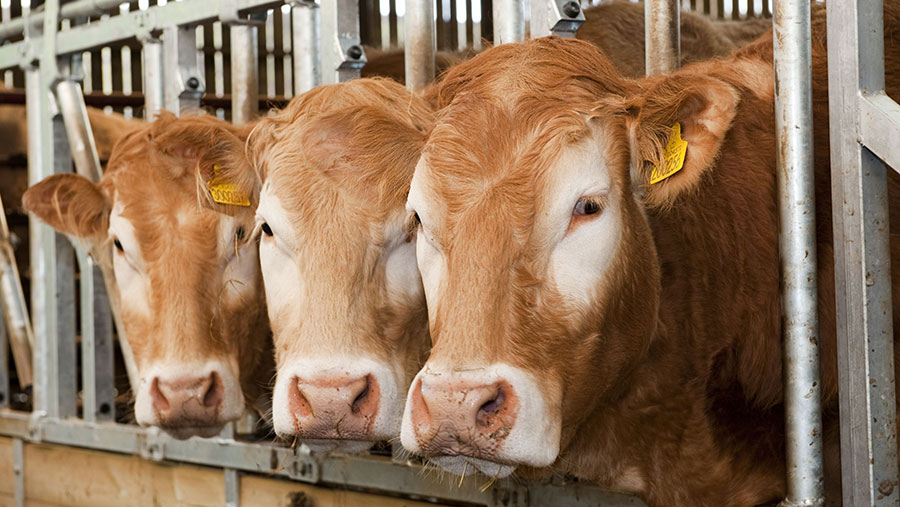Rumen genotyping advances could enhance cattle breeding
 © FLPA/REX/Shutterstock
© FLPA/REX/Shutterstock Future cattle selection decisions could extend to breeding for rumen microbiome characteristics, say researchers who have recently mapped more bovine rumen microbe genomes than ever before.
A British study published this week (28 February) has doubled the number of rumen microbes sequenced and available on public databases.
A multinational effort had previously logged 410 microbes, but following the study, published in Nature Communications, there are now 913 available for further research.
This progress is still “early days”, but could influence cattle breeding, bovine nutrition and even biofuel technology in the years ahead, researchers said.
See also: Step-by-step guide to assessing rumen function in beef cattle
Led by researchers from the University of Edinburgh’s Roslin Institute and Scotland’s Rural College (SRUC), the study analysed rumen microbes in 43 commercial beef cattle (Limousin, Aberdeen Angus, Charolais) at the SRUC’s Beef and Sheep Research Centre.
New enzymes were discovered that allow bovines to extract energy and nutrition from forage, which the Roslin Institute said could lead to advances in the biofuels sector.
Professor Mick Watson, Roslin Institute, said breeding companies are becoming increasingly interested in the rumen microbiome.
He added that making selection decisions based on the genotype of rumen microbes could be a possibility in the future, but stressed there is a long way to go.
“The study found different proteins to those studied before, there were lots of novel proteins in the Scottish beef cattle,” he told Farmers Weekly. “Breeders and farmers are selecting cattle for beef performance traits and perhaps without knowing they are changing and adapting the rumen microbiome from generation to generation for feed efficiency and growth.”
Professor Rainer Roehe from SRUC said: “The newly identified microbial species in the rumen of beef cattle will greatly improve our understanding of how the rumen microbial ecosystem works.
“Using breeding and nutritional interventions, we will be able to use this information to help improve cattle health and performance throughout the world.”
